Keiko Kishi
Nascimento : 1932-08-11, Yokohama, Kanagawa Prefecture, Japan
História
Keiko Kishi (born August 11, 1932 in Yokohama, Japan) is a Japanese actress, writer, and UNFPA Goodwill Ambassador. She made her acting debut in 1951, but is mostly known for playing the main role in Kimi no na wa (What Is Your Name?). Kishi married the French director Yves Ciampi in 1957, and commuted for a while between Paris and Japan to continue her acting career. In 1963 their only daughter, Delphine Ciampi, a musician and composer, is born. She divorced her husband in 1975. Since 1996 she has been a Goodwill Ambassador for the UNFPA. Shw won the award for best actress at the 25th Japan Academy Prize for Kah-chan.
Description above from the Wikipedia article Keiko Kishi, licensed under CC-BY-SA, full list of contributors on Wikipedia.

10-year-old Sota lives with his grandfather and a dog named Chibi in a small snowy village. They live in such a poverty that Sota cannot even afford to go to school, but however hard the situation is, Sota never holds a bad feeling against anyone around and keeps his dream alive to become a painter. He has been friends with Sayo, a girl brought up in a wealthy family, ever since they were little despite the difference of their family position, which Sayo’s father has uneasy feelings against. In spite of the difficulties he faces, Sota manages to complete a piece of painting which he wishes to give Sayo. He and Chibi goes down a snowy night path to Sayo’s house to find that her father’s storage is on fire... What waits for Sota and Chibi gently reminds that genuine happiness always exists in your heart.
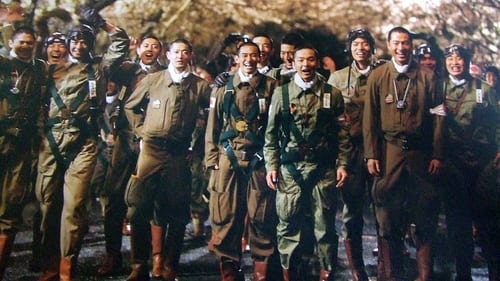
Tome Torihama
Em 1943, como o esforço de guerra japonês enfraquece, um vice-almirante propõe começar o treinamento de esquadrões de "pilotos voluntários" para abalroar com seus aviões armados os navios de guerra dos Aliados. Yarn segue a vida desses pilotos kamikaze, como relembrado pelo envelhecido restaurador Kyushu que preza a sua memória. Honra os mortos e inúmeros hinos militares pode agitar um pouco a alma do japonês, mas em outros lugares alguém vai fazer uma viagem só de ida. Cenas de batalha são bem realizadas e o roteiro traz algumas cenas memoráveis.
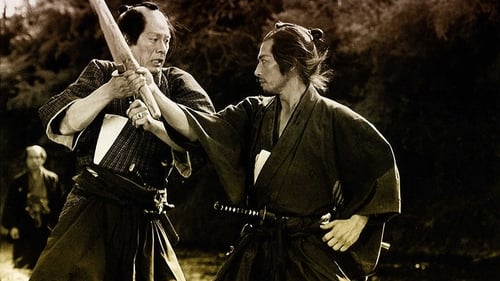
Older Ito Iguchi
Seibei Iguchi é um samurai de 2º escalão que presta serviços ao clã Unasaka. Sua esposa morreu de tuberculose e suas duas filhas, Kayana e Ito, dependem dele para sobreviver. O divórcio de Tomoe, seu amor de infância, faz com que entre em confronto com seu ex-marido, um samurai de grande reputação. Após vencer o duelo empunhando apenas uma espada de madeira, Seibei ganha respeito e é convocado a eliminar um poderoso inimigo.
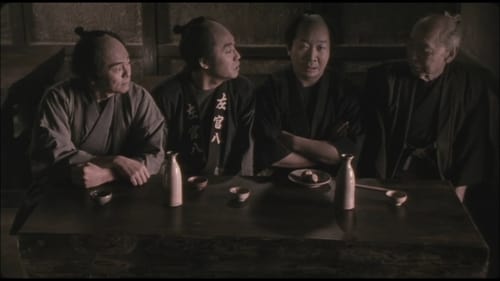
Okatsu
Okatsu is a widow raising five children - adults but still mama-dependent - in mid-eighteenth century Edo, Japan. Her frugality attracts unflattering comment even amid national tough times (the region is in famine) What Okatsu tells no one is that she saves so that a friend can start his own business once he's released from prison.

Toshiko Nagahara
The patriarch of a bickering family announces his retirement, stirring competition about who will succeed him as a leading practitioner of Noh theater, his granddaughter or grandson.

Nun Chishu
Toyoichi Otomo suffers from psychological and spiritual troubles after a horrific industrial accident. He lives with his elderly mother and wife near Mt. Aso in rural Kyushu. He seeks solace in a small religious group run by Buddhist nun Chishu-bo who claims to be the 68th descendant of famed 11th century poet Izumi Shikibu. The members of her sect regard her as a living saint. Yet instead of balming his soul, she riles his libido by playing a sexual cat-and-mouse game with the fragile Toyoichi. When she does bed him, it leads to a miracle healing -- followed by a terrible calamity.

Tsuruko Makioka
This sensuously beautiful film chronicles the activities of four sisters who gather in Kyoto every year to view the cherry blossoms. It paints a vivid portrait of the pre-war lifestyle of the wealthy Makioka family from Osaka, and draws a parallel between their activities and the seasonal variations in Japan.

Self
An extremely lovely tribute to Ozu, on the 20th anniversary of his death. It uses a combination of footage from vintage films and new material (both interviews and Ozu-related locations) shot by Ozu's long-time camera-man (who came out of retirement to work on this). Surprisingly (or perhaps not), it focuses less on Ozu's accomplishments as a film-maker than on his impact on the lives of the people he worked with..
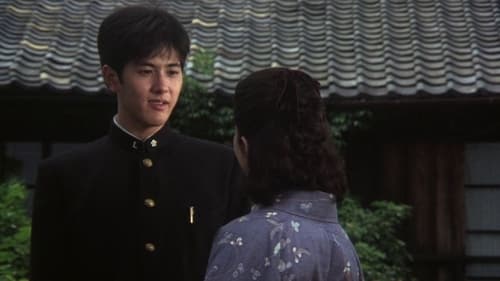
Shige (Chieko's mother)
Chieko (Momoe Yamaguchi) has been raised as the only child of parents who run a dry goods store. When Chieko was a middle-school student, she learned that her parents are not her biological parents. Cheiko's mother told her that she was stolen while sleeping under a cherry tree in Gion, Kyoto, Japan, but Chieko doesn't believe that. Her relationship with her parents is very close. Chieko only tells her childhood friend Shinichi, but...
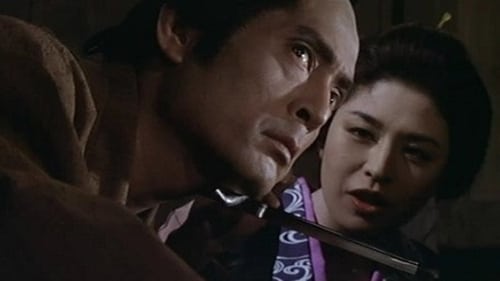
Omon
Yataro Tanigawa, a one-eyed hired assassin, impresses yakuza boss Gomyo Kiyoemon with his skill. Gomyo hires Tanigawa as his bodyguard, or yojimbo, to protect him during an inter-clan conflict. Tanigawa quickly rises in stature in the clan, but finds his boss's enemies almost overwhelming.

Hideko Kamio
To solve the mystery of a murder of an old governess which takes place at a wealthy Daidoji family's country estate, family secrets and lies dating back several generations must be sorted out once and for all.

Rika Aochi (proprietress of the Kamenoyu)
Kôsuke Kindaichi, a somewhat peculiar private detective, visits a remote town. He meets a police detective and they start to investigate an old unsolved murder. Then some murders happen. Kindaichi must find out about the past in order to reveal who the murderer is.
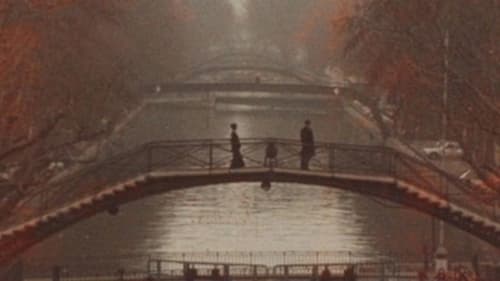
Madame Marcelin
An industrialist is diagnosed with terminal cancer. He is on a trip to Europe at the time, and a glimpse of a Japanese woman in that setting causes him to fantasize about her as the personification of his impending death. As his dialogue with his imagined mortality continues, he actually meets the living woman who is the template for his fantasy, and together they tour rural churches. Gradually he comes to some kind of peace about the diagnosis. When he returns to Japan, he is met with a series of challenges which profoundly test the lessons he has learned.

Nakatsu
Akira, a Japanese expat working in Amsterdam, falls in love with a Japanese woman at Schiphol Airport who he thinks is his high school love.
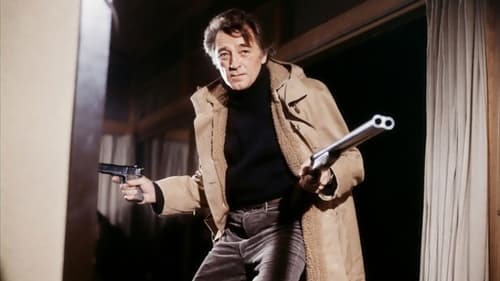
Eiko
Homem volta ao Japão para tentar resgatar a filha de um amigo, que foi sequestrada pela máfia Yakuza. Lá, reencontra uma amante que teve no passado e pede ajuda ao irmão dela para enfrentar a organização.
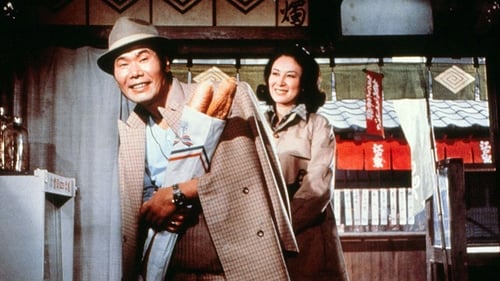
Ritsuko
Tora-San returns to Shibamata just before his family leaves on a trip for Kyushu. Later, he encounters an old school chum and begins to have feeling for his artist sister.

Keiko Matsumiya
The brief love story of an attentive young man and a beautiful woman who meet, fall in love and part during the course of a train ride.

Nikki Kono
Zero Mostel plays an inspector on the trail of criminals who have captured a robot called Chatze(sp?) played by Felix Silas. The inspector has delusions that he is a great Samurai warrior and the movie flashes back and forth between present day and ancient times.
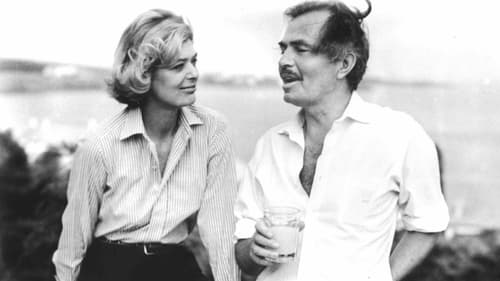
Nora
Vincent is recovering from a nervous breakdown in a seaside village on the Costa Brava. He enters into an affair with nightclub owner Jenny, but their relationship changes when she falls for alcoholic author Pascal Regnier, who is struggling to resume his writing career. Vincent eventually returns home, leaving Jenny to stay on with Pascal and his young son Daniel.
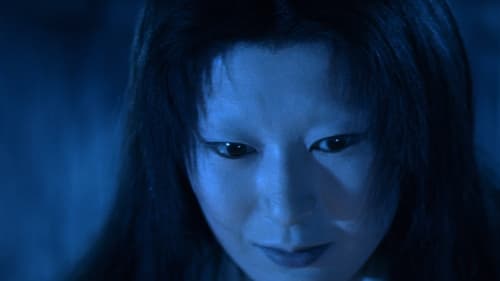
Yuki the Snow Maiden (segment "Yuki-Onna")
Produção japonesa contada em quatro histórias. Em "Black Hair", samurai divórcia-se da mulher que ama para se casar com outra pelo dinheiro; em "The Woman in the Snow", lenhador encontra mulher congelada e o espírito dela aparece para revelar detalhes de sua vida, pedindo a ele que jamais conte a ninguém - mas dez anos depois ele esquece a promessa; em "Hoichi the Earless", o jovem e cego Hoichi vive num monastério e passa a cantar para fantasmas do império; e "In a Cup of Tea" fala de um escritor que vê uma misteriosa face refletida numa xícara de chá.

Asami
Van Hekken, an old gangster, arrives in Tokyo to direct a bank hold-up in order to get a very valuable diamond.
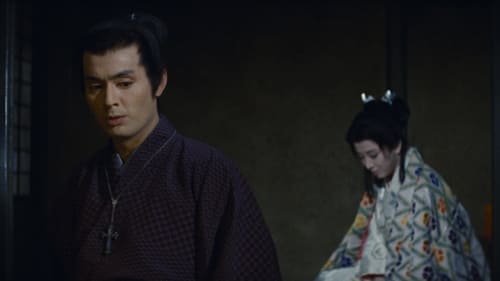
The basic story in Love under the Crucifix is about Ogin, daughter of a tea master, who are both Christians in feudal Japan. Ogin falls in love with a feudal prince, also a Christian who is already married, and that creates problems. Further, when the Shogun bans Christianity, the situation worsens.
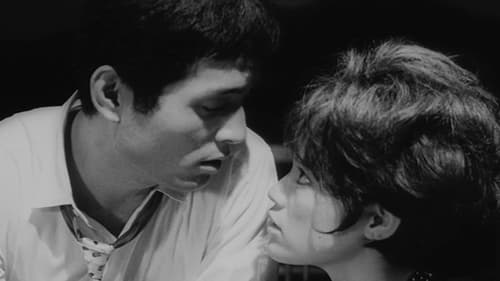
Yasuko Miyagawa
On his deathbed, a wealthy businessman announces that his fortune is to be split equally among his three illegitimate children, whose whereabouts are unknown to his family and colleagues. A bevy of lawyers and associates scheme to procure the money for themselves, enlisting the aid of impostors and blackmail.
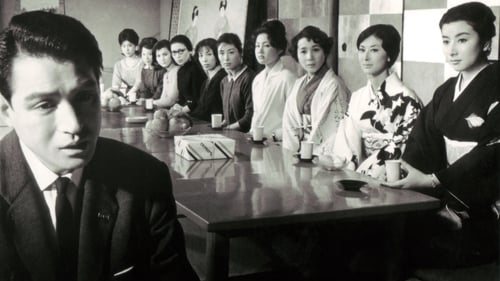
Ichiko Ishinoshita
Kaze is a philandering TV producer. His wife and nine of his mistresses conspire to kill him. However each woman would rather keep him alive, as long as she was the only woman in his life.

Yuki Sakurai

Gen
Set in 1926 when Japanese tradition was much stronger, this drama looks at the inner workings of a small family, especially the relationship between a sister and brother.
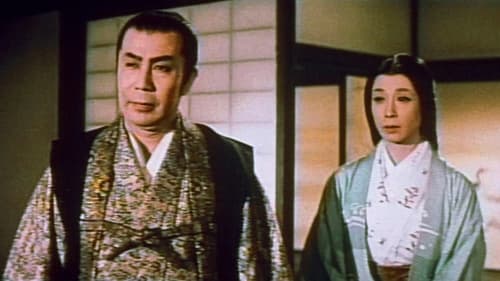
Tama
The plot is based on the novel "Akechi Samanosuke no Koi," the final work in a trilogy by Hiroshi Kato about the forced suicide of Oda Nobunaga at the temple Honnoji. Historically, the general Akechi Mitsuhide is credited with causing Nobunaga's downfall. Kato's novel focuses on Mitsuhide's nephew Samanosuke, who fought alongside his uncle during the assault on Honnoji.
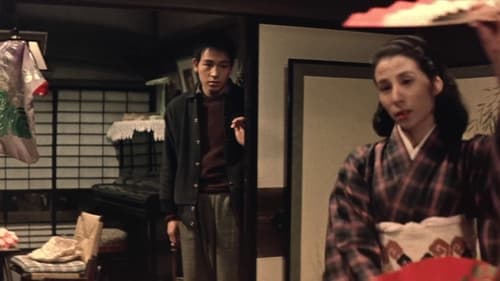
Haruko
After surviving the double suicide pact she made with her lover, a woman gives birth to their child.

Komako
It's a man's world. Shimamura, an artist, comes to this snowbound town to rejuvenate himself. He connects with Komako, a geisha he met on a previous trip, and it seems like love. She's the foster daughter of a local family, almost engaged to the family's son Yukio, now dying of consumption. He's tended by his sister Yuko who's angry at Komako for abandoning her brother. Shimamura returns to Tokyo but promises he will be back soon. In anticipation of his return, Komako breaks with her patron and her family loses their home. Complications arise when Shimamura doesn't come back as promised. Then Komako discovers that he and Yuko knew each other in Tokyo. Can Komako escape destiny?
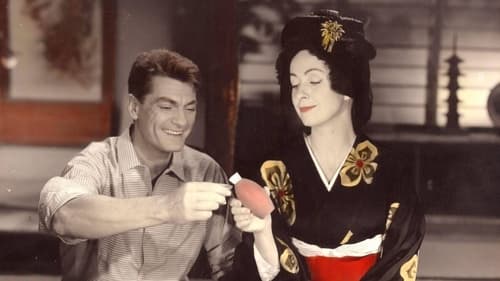
Pierre Marsac, a French engineer working for the Nagasaki shipbuilding yards, has fallen in love both with Japan and a charming Japanese girl named Noriko. But Françoise Fabre, a French journalist and Pierre's former lover, contacts him while visiting the Land of the Rising Sun. They meet again, find out their love might not be dead. Meanwhile, Pierre gradually becomes estranged from sweet, humble Noriko. One day, a typhoon strikes Nagasaki...
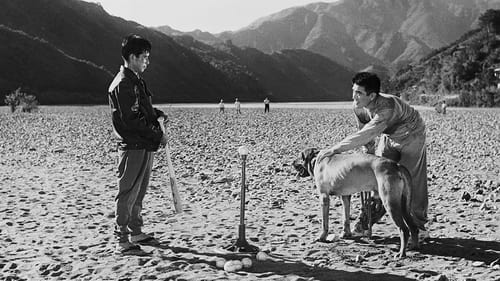
Fudeko Taniguchi
A talent scout moves sharply, dead-set on signing a promising athlete to the baseball team the Toyko Flowers.
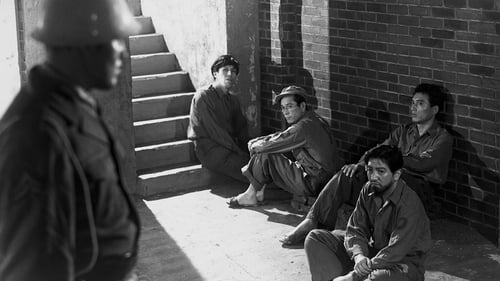
Yamashita's sister
Um grupo de soldados japoneses comuns é preso por crimes contra a humanidade, eles próprios vítimas de uma nação que se recusa a carregar o seu fardo como um todo.
Da coleção "Criterion Collection": "Entre os primeiros filmes japoneses a lidar diretamente com as cicatrizes da Segunda Guerra Mundial, por ser um filme com conteúdo inflamatório, o filme foi engavetado pelo estúdio por três anos antes de ser lançado."
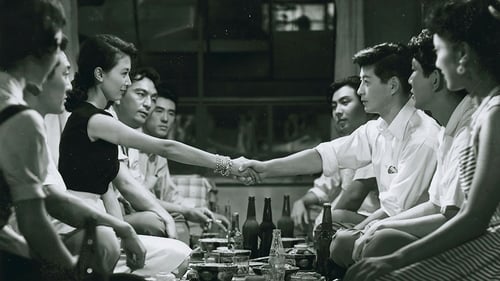
Chiyo Kaneko
Um jovem assalariado e a sua esposa lutam dentro dos limites do seu relacionamento sem paixão, enquanto ele tem um caso extraconjugal.

Shuzenji Monogatari (The Mask and Destiny) is based on a 12th-century Japanese legend. An abortive royal romance leads to an escalating series of tragedies. The central character is a Japanese monarch who would prefer to live a humble existence as a maskmaker. Unfortunately, events -- and destiny -- are against him. When first released, Shuzenji Monogatari was held in far lower esteem than such recent Japanese films as Gate of Hell and Samurai. Nevertheless, the film was selected as an entry at the Venice Film Festival, possibly on the strength of its excellent production values.

Sachiko
A Chinese medical student named Gan Shosho finds himself cut off from his homeland as he is studying in Japan during the outbreak of the war. Despite his difficult circumstances, he finds love in the form of Sachiko and the two marry. They later travel to Nanjing to live a new life together where Sachiko and Shaochang cooperate with the Japanese-backed government. Their ultimate hope is to secure peace but their idealism is not enough to keep them together through brutal times and with the end of the war the two find themselves facing a divorce... --Osaka Asian Film Festival

A boy falls in love with a girl. Neither of them know that she's to be sold to a brothel.

The story of a group of young people who organise their own travelling symphony orchestra to provide music for people living in remote villages shortly after the war.
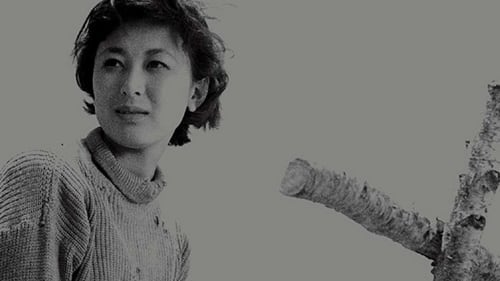
Michiko Satomi
In a mountain village, Heita, a translator's son, is a gifted boy but is shunned by the villagers. He can imitate birds' cry and befriends another boy who works in a brewery. Heita also finds solace in the village pastor Yasugi and his teacher Michiko, but they too have problems of their own.

O drama de Machiko e Haruki continua. Machiko não tem permissão para ver Haruki. Eles finalmente se encontram novamente, mas Haruki parte para a Europa.

Dai-ni-bu: Aijô ruten: Kiyoshi Saeki directed movie

Tomiko Takioka
A student at a woman's university takes a controversial action against the school's old-fashioned doctrines.

O drama de Machiko e Haruki continua. Dois se encontram novamente em Hokkaido, apenas para serem separados novamente.

Machiko Ujiie e Haruki Atomiya se conheceram e apaixonam-se na ponte Sukiyabashi em Ginza durante o Grande Raid Aéreo de Tóquio em março de 1945. Machiko e Haruki prometem reencontrarem-se novamente na ponte dentro de seis meses, mas separam-se sem perguntar o nome um do outro.

This film stars Tanaka Kinuyo as the mother of the heir to the Hosho name, a famous lineage of Noh actors. The heir, Hosho Yagoro, is played by Hasegawa Kuzuo who went on to become familiar among Ichikawa Kon fans as Yukinojo in An Actor's Revenge, which was also co-written by Ito, adding to the relatedness of An Heir's Place.

Um filme de Shūe Matsubayashi e Masahiro Makino

Having completed the first year at his new medical practice, a doctor plans to relax on his day off. However, it is not to be: on this hectic day a man just back from the war front visits the doctor with a medical emergency, followed by a woman who claims to have been molested. Then a yakuza arrives to ask the doctor to cut his finger off...

Asako works in a hostel for troubled young women. When a beautiful young girl is brought in one day after committing theft, Asako finds out from the older widow she works with that the new girl is undoubtedly her half-sister. When the younger sister suddenly flees on account of a misunderstanding, Asako makes up her mind to find the mother who deserted them both.

The Ueki family may not be wealthy, but smiles are never in short supply. The father is awarded prize money for 25 years of service to his workplace, but has it stolen on the way home from the ceremony...































